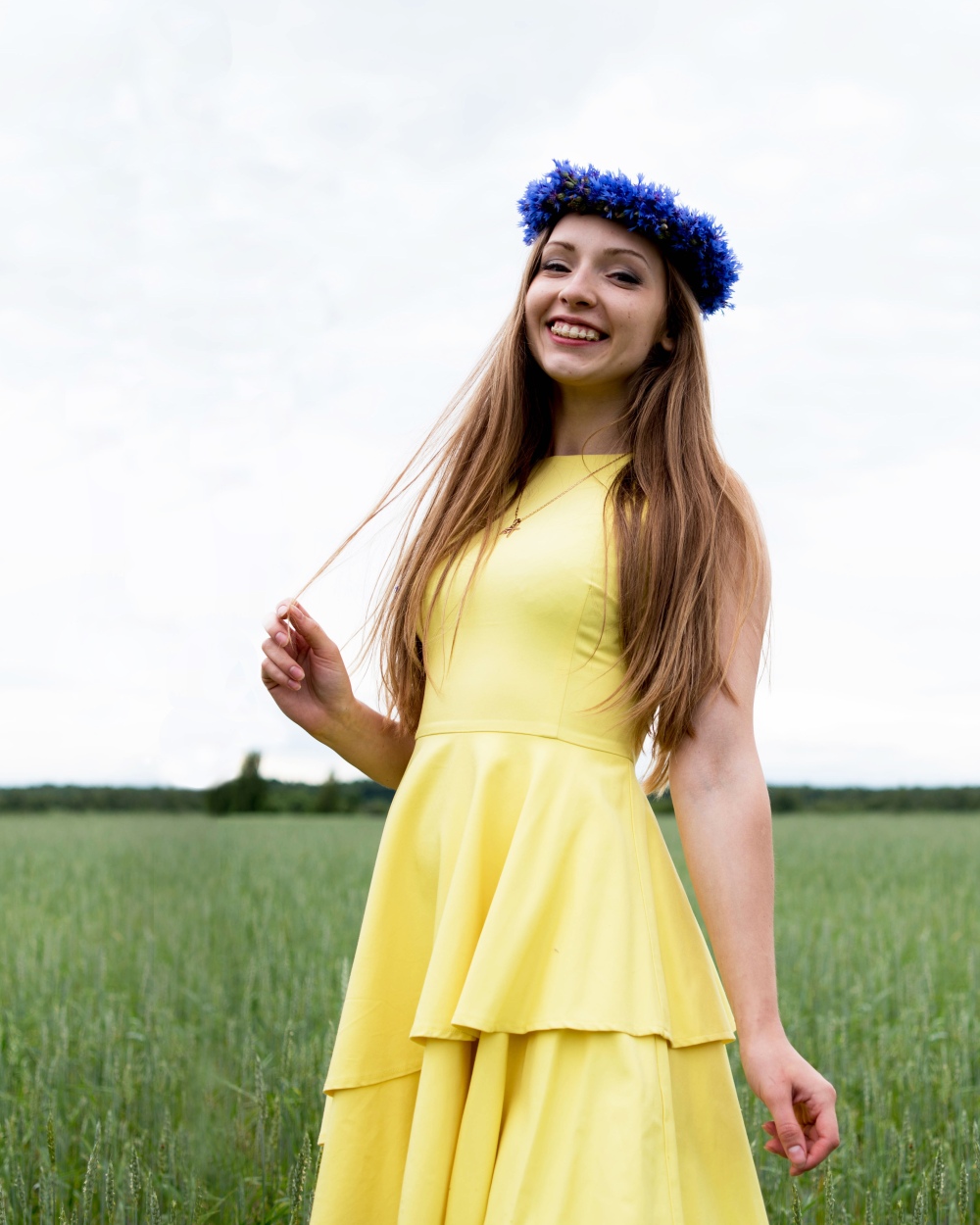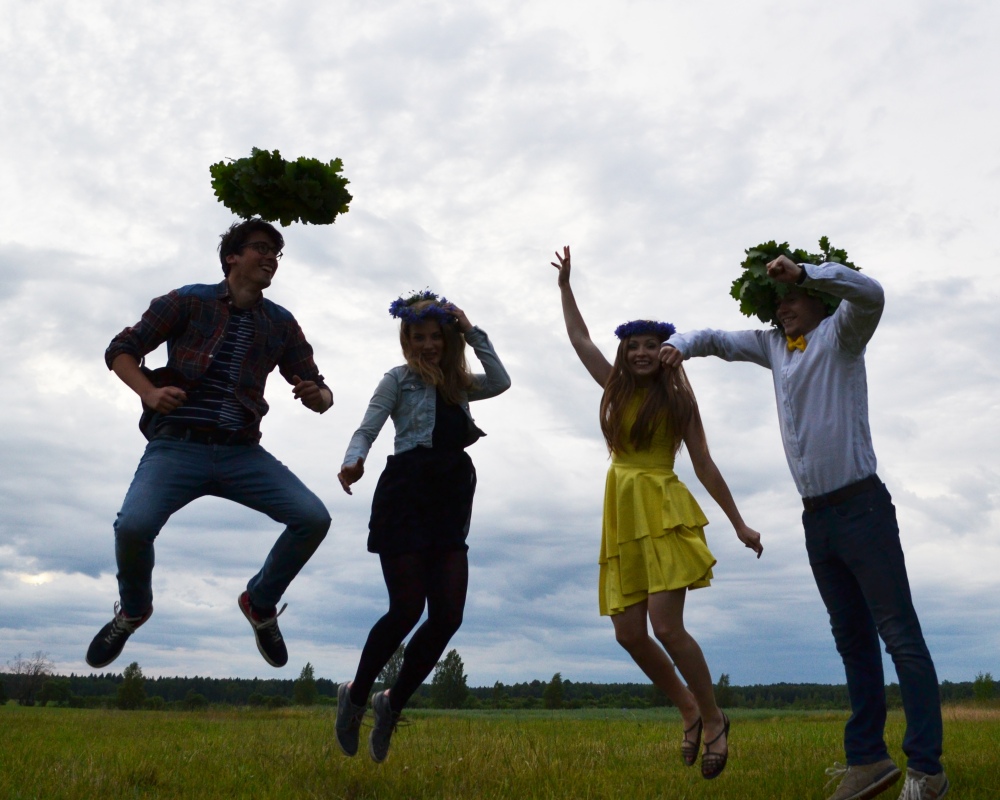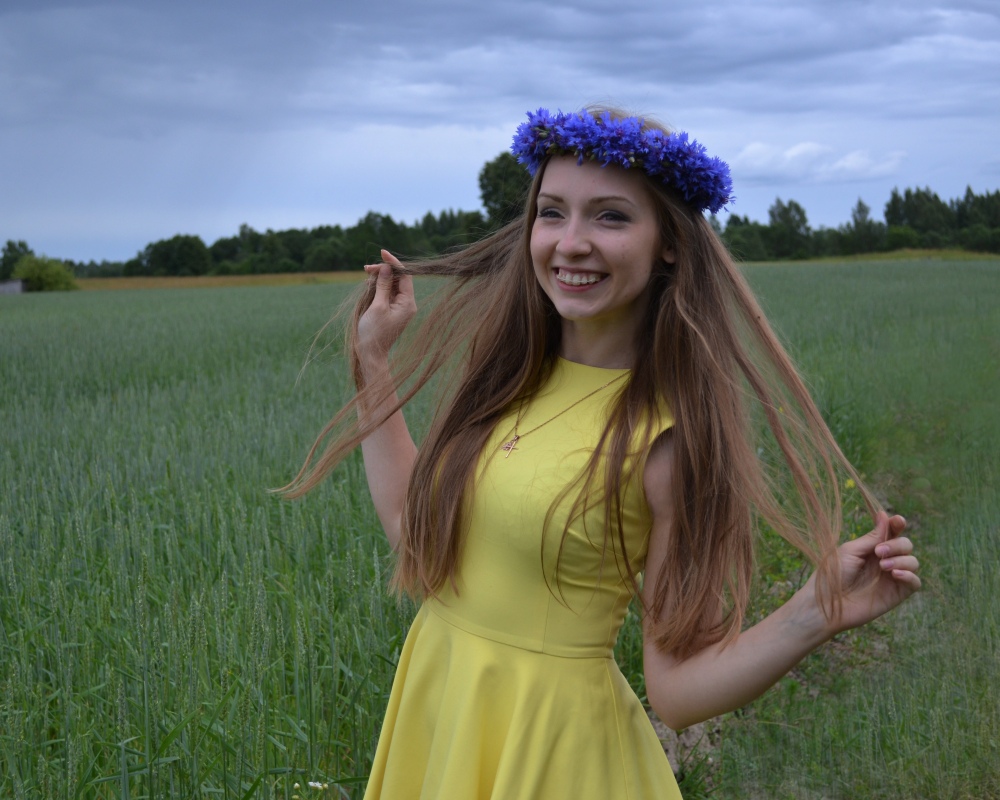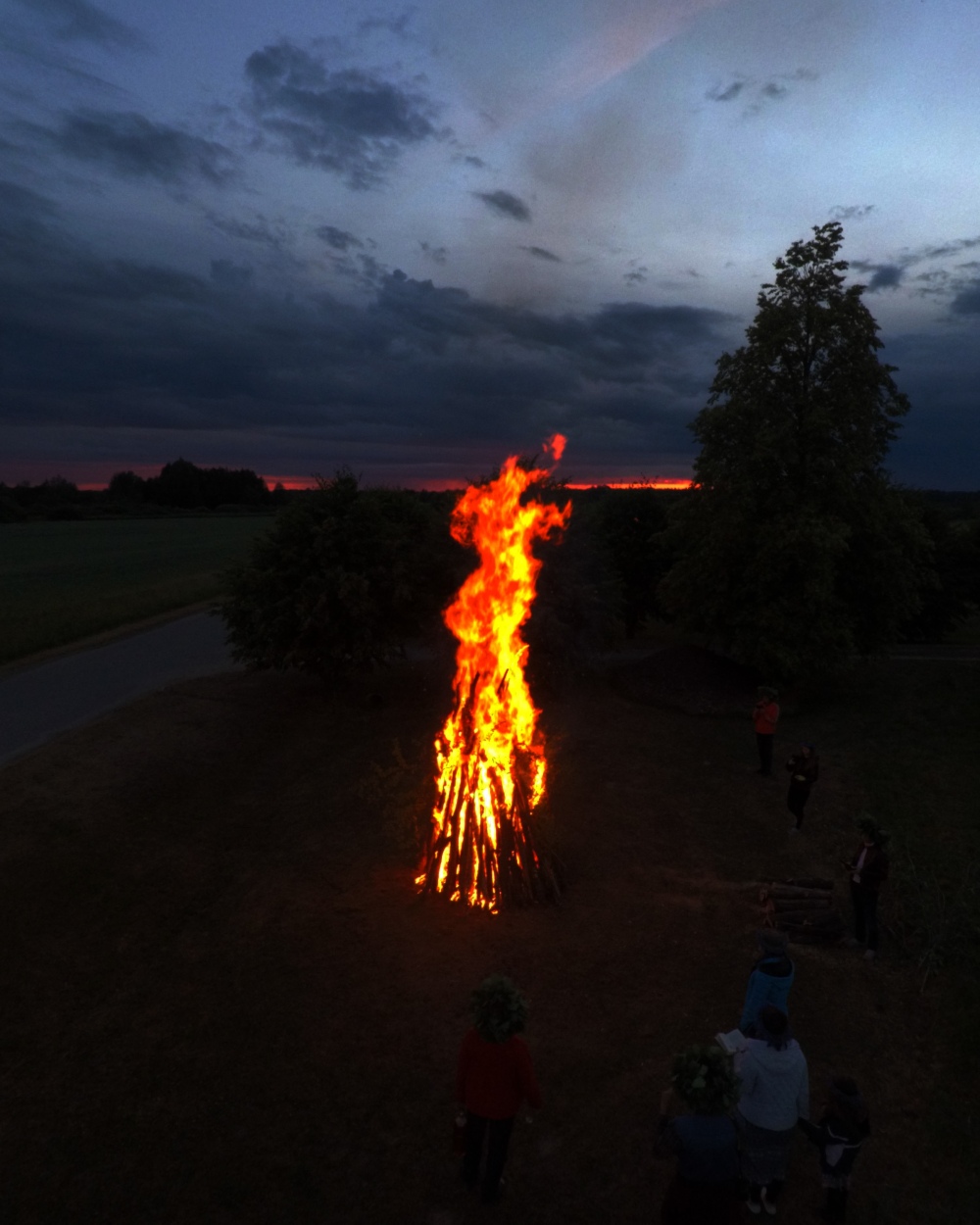What is it?
Līgo (Jāņi) is a Latvian tradition to celebrate the shortest night and the longest day. That is a celebration of the summer solstice. Originally Līgo/Jāņi was a festival for pagan farmers that existed long before the arrival of Christianity. These traditions are still alive.
When is it?
Every year we celebrate the night from 23rd June to 24th June. However, the solstice is actually on 21 or 22 June, the public holidays – Līgo Day and Jāņi Day – are on 23rd and 24th June.

Why?
This is really an old tradition. It is related to pagan mythology. Bonfire symbolizes the Sun which we keep light all night long to save a daylight and to beat dark forces. We keep the traditions as our ancestors did centuries ago.
This celebration is full of traditions, symbols, and beliefs! Either you believe it or not, it is a fun thing!
What do we do?
We decorate the house and the table with some wildflowers and linden and birch trees. We take herbs for the tea and for the health because we believe that those herbs which are taken on these days will have a magic power to make us healthy.
We make flower crowns for girls and crowns of oak tree leaves for guys. We make bonfires, eat homemade cheese, drink beer, do barbeque and sing songs with “Līgo, līgo” refrain all night long.
Flower crown (wreath) is a symbol of beauty. Tradition says that they have to be made of wildflowers, however, nowadays there might be different variations. It is believed that wreaths braided with twenty-seven flowers and herbs prevent disasters and diseases, and repels enemies. They are for decorative, therapeutic and other symbolic purposes. Each flower has a different meaning and it is related to a different part of a human and works for the health. Another tradition is to throw this wreath on the tree. If it falls down you have to try again and again until it stays there. This way all the girls will get to know after how many years they will get married.
Crown of oak tree leaves is a symbol of power. Men and boys wear wreaths made of oak leaves, symbolizing the physical strength of the oak tree. Oak wreaths were also thought to promote the blessing of horses and bees. It gives a strength and power to a man! There are some superstitions which we kind of believe or just pretend to. Anyways we love these traditions and we love the process!
It is also believed, that erotic activity can have a positive impact on the creation of power.
On Līgo and Jāņi Day people drink beer and eat cheese, believing that it will promote the growth of barley and production of cow milk in the next summer. Singing visitors from neighboring houses are treated with cheese and beer.
Where do we go?
We try to get out of the city to be closer to nature and to feel Latvian pagan spirit. That is the best!
Those who can’t get outside and are forced to stay in the capital city Riga have a special festive programme prepared for them every year with a contemporary take on Jāņi hosted at 11th November krastmala on the shores of the Daugava River, as well as a more traditional celebration at Dzegužkalns Park in the Pārdaugava neighborhood.

Another thing!
Every day someone has a Name day. It is written in the calendar. On 23rd June – Līgo – all the girls with a name – Līga – have their Name day. And on 24th June all the guys with a name – Jānis – celebrate their Name day. Jānis is actually the most popular name for guys in Latvia. In English that would be John.

Either you call it Līgo either Jāņi, it is a big thing for Latvians. We celebrate this since pagan times. It has a pretty big impact on our tradition and jokes.
Singing Līgo songs or Jāņi songs is associated with the promotion of fertility, acquisition of good fortune and prevention of calamity.
Celebration all night long! You must not sleep on Jāņi night! Sleeping is only allowed after sunrise. At dawn, one should walk through the morning dew – this brings money. And those who wash their face in the dew will have guaranteed beauty.


This is really a fun thing! Everyone loves this fest!

The meaning of the bonfire is: It is related to the cult of the Sun.
We keep the bonfire light until the next sunrise. This practice reflects the belief that light from the fires will transmit to the next solar year. It is believed that fires should be burned at a high point in the landscape, from which the light of the fire bestows power and fertility on the fields and people on which it shines. Leaping over the Jāņi fire is said to bring good luck and health through the coming year.
We also jump over it. One of the hallmarks of Jāņi is leaping over the bonfire which is meant to rid people of their burdens. Couples leap holding hands so that the magical force of the flames binds them together.


I hope you will have a chance to experience this festival on 23rd June in Latvia because it is really a unique thing! You cannot see it anywhere else in the world!
On Līgo all the people travel from the city into the countryside to gather and eat, drink, sing and celebrate the solstice! We still keep the folk traditions relating to renewal and fertility.
Different cultures have different traditions. You will never see anything like this outside of Latvia. So come here to experience this!


This is beautiful. Such a wonderful and fun-filled tradition. Thank you for bringing it to us!
LikeLiked by 1 person
So cool! I had no idea. I love all the traditions like walking through the morning dew after the festival for money and beauty. Thanks for sharing – would be amazing to see in person one day!
LikeLiked by 1 person
I am glad of your interest! Welcome anytime 🙂
LikeLike